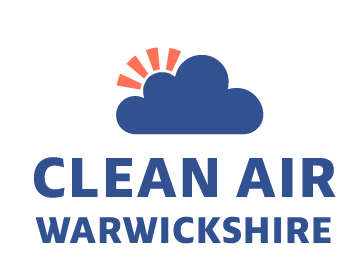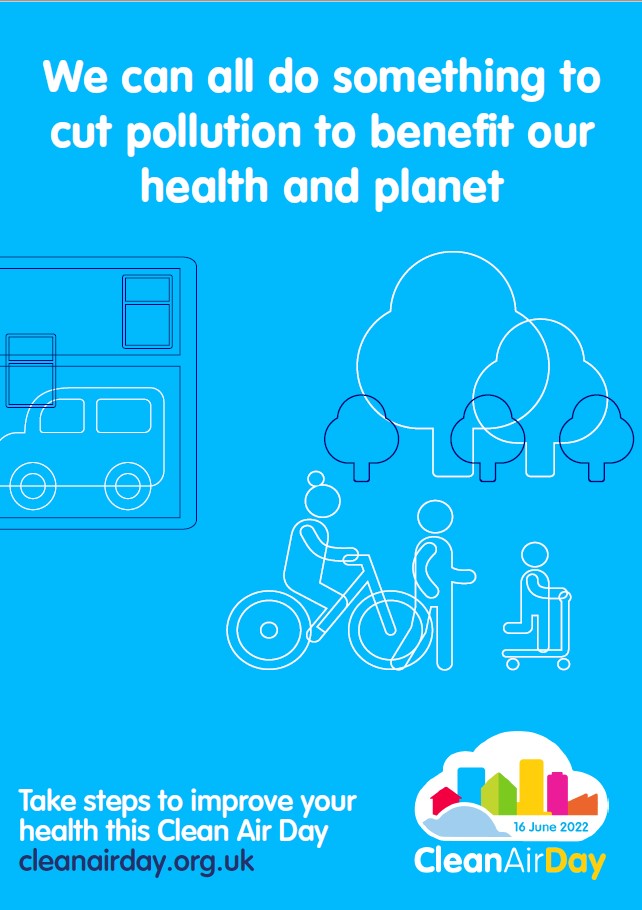


You CAN make a difference!
If you live, work, shop or spend your leisure time in a polluted area - there are some simple things you can do to drive air pollution levels down for yourself and your family. Here are just a few.
Below are some things you can do to help keep the air clean in your town.
Send your own suggestions to enquiries@cleanairwarwickshire.org.uk and we will add them here.
Active transport is transport based on physical activity, usually walking or cycling. Being active in your daily commute will help to make you fit and healthy, whilst keeping the streets less congested and the air cleaner.
If you can walk to school or college. If it is too far to walk, then consider cycling. For longer school journeys there is usually public transport, use it if you can.
If your work is very close you may be fortunate enough to be able to walk, if not then consider cycling. For longer commutes, public transport is usually the cleanest and least expensive option, use it if you can.
If you really have to use a car for work, then take comfort from the others who are avoiding using their cars, making your commute less congested, shorter and less stressful.
At Clean Air for Leamington we love motorists, let's face it most of us are motorists on occasions. The motorists we love the most are those who use their cars as little as possible and follow these AA Economic Driving Tips
Also keep in mind that the more people who avoid using their cars when they can, the less congested the roads will be and the less polluting those few essential journeys will become.
Public transport, where it is available, is a clean and cost-effective way to get to work. The more we use public transport the more it will be economic to provide it.
After motorised transport, the next biggest contributor to air pollution is burning wood or fossil fuels. Almost whatever you are burning it is likely to be adding to air pollution, burning garden waste is one of the biggest sources of harmful particulates. The more you avoid burning wood, coal or other fossil fuels the cleaner the air will be.
Electricity is a clean source of energy, especially if it is not produced by the burning of fossil fuels. Solar panels provide households with cheap and clean electricity, plus they can often provide electricity to a neighbourhood by giving back to the grid.
Doing what you can really makes a difference, perhaps you would like to spread that message still wider by Getting More Involved?